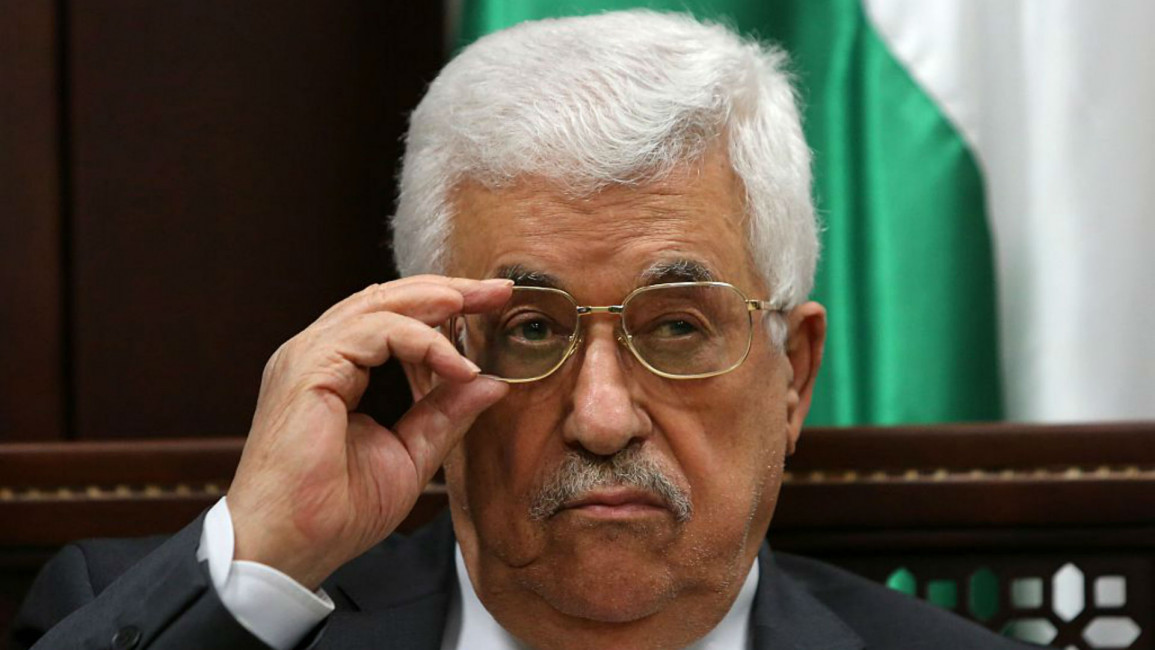
The missing revolution: Palestine's need for new leadership
In the face of Israeli repression, many Palestinian leaders have placed the pursuit and maintenance of power before the quality of life of their people. Amid years of democracy movements in the Middle East, the Palestinian revolution has been conspicuously missing - there's been no great push for liberal democracy, sustainable development, proactive foreign policy, or transparent government.
The Israeli occupation impoverishes the Palestinians in the territories, but the Palestinian Authority (PA) has also failed to address the needs of its constituents. PA President Mahmoud Abbas, other PA leaders, and high-ranking Hamas members have generally ignored the daily plight of their people and of future generations.
Corruption in the territories is rife - many Palestinian government officials lead opulent lives at home and abroad, while ordinary citizens are left to fight for survival amid constant insecurity.
Career revolutionaries cannot continue to be the faces and administrators of Palestine. The missing revolution must rise, and be led by civic leaders and members of the post-Oslo intelligentsia. These individuals - technocrats, artists, and businesspeople - should challenge the authority of the PA and work to represent the largely young and educated Palestinian population.
 |
Career revolutionaries cannot continue to be the faces and administrators of Palestine |  |
Abbas embodies irrational leadership. Over the years, he has made comments deemed inappropriate by the international diplomatic community, most notably in March of 2018, when he called the US ambassador to Israel a "son of a dog".
Similarly, in April 2018, during the Palestinian Legislative Council's first meeting in nine years, he gave a speech claiming that the Jewish people brought the Holocaust upon themselves as a result of their behaviour in Europe. He later apologised for these remarks, but comments like these massively delegitimise the Palestinian movement abroad.
Discipline of message is crucial to forging strong public diplomacy. Edward Said wrote in 2001: "As a people, we Palestinians have to do what the South African anti-apartheid movement did… gain legitimacy in Europe and especially in the US, and consequently de-legitimise the apartheid regime." This begins with having a legitimate, respected, and representative leadership.
Twitter Post
|
Said's warning is still relevant. Eloquence and tangible proposals - rather than profanity and calls for rage - are required to gain support from allies around the world.
For instance, Abbas' rejection of the so-called "Deal of the Century" was appropriate, with 94 percent of Palestinians opposing the farcical proposal. However, condemnation must be matched with an effective public diplomacy strategy to counter the political alliance between the Trump administration and the Israeli right.
Read more: PA-UN media collaboration is excluding Palestinian narratives
To halt Israeli expansionism, Palestinians from beyond the party structures are needed - Palestinians who have grassroots and global experience trying to alleviate the health, economic, legal, and security problems that plague their fellow citizens and refugees. Without modern leaders who can appeal to major powers, Palestine will continue to stand alone.
Last January, Abbas once again dissolved the Palestinian Legislative Council, which was never truly functional, by order of the Constitutional Court - a court he created in 2016. By setting up the judiciary himself, he has impeded confidence in the rule of law. Power has been concentrated in the hands of the 84-year-old president for 15 years.
His administration continues to crack down on freedom of the press and freedom of expression, most recently blocking 59 Palestinian websites and social media pages critical of the government.
Corruption runs deep within the PA. The 2017 report released by the Coalition for Accountability and Integrity (AMAN) revealed that salaries and allowances continue to be paid to employees of "Palestinian Airlines". The airline has not been operational in the territories since the destruction of Gaza's airport in 2001.
In its 2018 report, AMAN highlighted examples of weak government transparency, citing numerous patronage appointments and the stalling of the "Access to Information" law.
It is unreasonable to assume that a corruption-free government exists anywhere in the world. Yet enhancing the effectiveness of public institutions, reforming the judiciary, and placing people before power are not impossible tasks; in fact, they are the most basic elements of a government's job description.
Since 2007, clashes between Hamas and the Fatah-led PA have been constant, and the people have been caught in the crossfire.
 |
There needs to be a new leadership that is in tune with the Palestinian people |  |
Amnesty International has frequently accused Hamas of extrajudicial killings. These killings oftentimes take place in public to intimidate Palestinians who may not support Hamas. A report released by Human Rights Watch shows that the PA has also cracked down on dissent, arresting supporters of Hamas and other groups. This includes crackdowns on Palestinian students, who also live under the threat of Israeli security forces.
Replacing Abbas isn't enough - he represents an entire system, one that has failed to provide the people with security, basic necessities, and peace.
There needs to be a new leadership that is in tune with the Palestinian people, as well as the global community, to undo the abuses of the last several years.
Leading a revolution against the PA will not undermine resistance against the Israeli occupation. On the contrary, successful resistance to Israeli policies requires the downfall of the complicit PA regime, and the subsequent creation of a government that represents the Palestinians of today.
Laura Albast is Palestinian-American. She holds degrees from the American University of Beirut and Boston University, and works at an NGO in Washington, D.C.
Follow her on Twitter: @Lau_Bast
Opinions expressed in this article remain those of the author and do not necessarily represent those of The New Arab, its editorial board or staff.


![President Pezeshkian has denounced Israel's attacks on Lebanon [Getty]](/sites/default/files/styles/image_684x385/public/2173482924.jpeg?h=a5f2f23a&itok=q3evVtko)



 Follow the Middle East's top stories in English at The New Arab on Google News
Follow the Middle East's top stories in English at The New Arab on Google News


